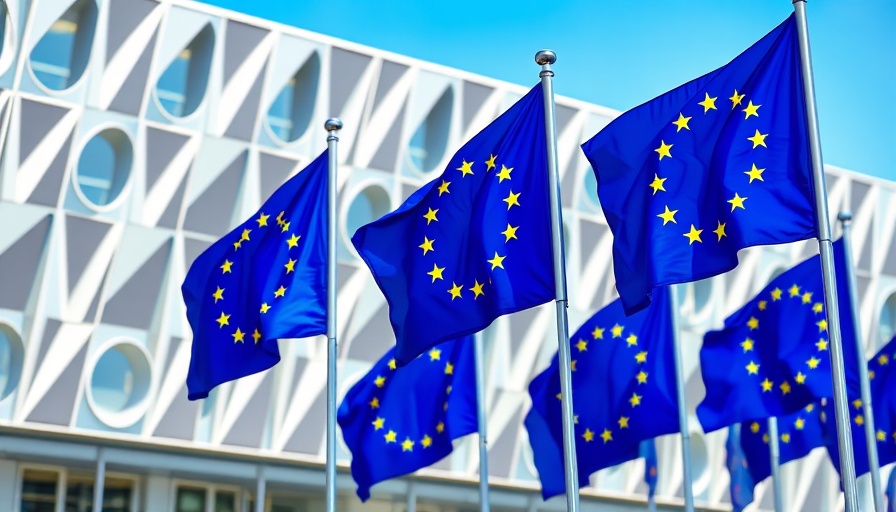
How U.S. Tech Dominance Raises Red Flags
European leaders are increasingly scrutinizing their reliance on American technology and services. A recent report highlighted that this concern intensified after President Donald Trump sanctioned Karim Khan, the prosecutor of the International Criminal Court (ICC). The sanctions triggered Microsoft's decision to deactivate Khan's email account, reflecting fears that American companies may be obliged to comply with U.S. government mandates, even at the expense of foreign entities.
Potential Shifts in European Technology Strategy
This incident has pushed many European institutions to seek alternatives. Former diplomat Casper Klynge notes that Microsoft’s actions have acted as a wake-up call, prompting countries across Europe to explore options such as Swiss email service Proton, which offers strong privacy protections. “If the U.S. administration can go after organizations, countries, or individuals, that raises significant concerns for us,” Klynge stated, adding that this issue could lead to a reevaluation of technology partnerships.
Microsoft’s Response: Navigating the Changing Landscape
In light of the heightened scrutiny, Microsoft announced policy changes aimed at better safeguarding their European clients. CEO Satya Nadella mentioned the introduction of “sovereign solutions” intended to enhance data protection for European institutions. This move attempts to address fears and reinforce trust among its users, ensuring they feel secure amid these volatile geopolitical circumstances.
Current Events' Impact on Technology Dependence
As the global landscape shifts, European countries are displaying a growing interest in tech independence. This manifests further in potential collaborations with non-U.S.-based technological firms and the development of home-grown alternatives that mitigate these dependencies. Experts agree that a pivot to bolstering local tech initiatives could reshape how Europe engages with technology providers globally.
Counterarguments: The Value of U.S. Technology
While many European leaders express concerns, there are strong counterarguments regarding the efficiency and innovation associated with U.S. tech firms. Companies like Microsoft and Google have been at the forefront of cutting-edge advancements in AI and cloud computing, which continue to provide significant benefits to European markets. Some argue that abandoning these partnerships may stunt technological growth and hinder progress.
Integrating Local and Global Trends
The dialogue surrounding tech dependency isn’t solely focused on U.S. firms. It opens the floor to discuss the broader implications of globalization in technology. As European leaders navigate this junction, they are tasked with balancing the benefits of collaboration with trusted partners while encouraging local tech development.
Looking Ahead: Trends and Opportunities
The ongoing conversations about tech sovereignty highlight significant opportunities for innovation within Europe. As industries look for solutions that promote privacy, data security, and cultural alignment, there is a unique opening for startups and established businesses alike to cater to these emerging needs. This pivot could foster a vibrant technology ecosystem that meets regional requirements without being excessively beholden to American entities.
Conclusion: A Call for Awareness and Action
In summary, as European leaders express concerns over their dependency on U.S. tech, the landscape is ripe for a paradigm shift. By exploring alternative partnerships and homegrown technologies, Europe can carve out an independent path that prioritizes security and privacy. If you're part of Central Ohio’s tech community or interested in these trends, it’s crucial to stay informed and engaged with the evolving landscape of technology, both locally and globally. Consider how these developments might influence your strategies in the tech sector.
 Add Row
Add Row  Add
Add 




 Add Row
Add Row  Add
Add 

Write A Comment